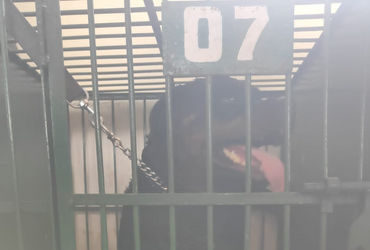Following the incident in Hathijan, where a four-month-old baby was attacked by a pet Rottweiler, the Amdavad Municipal Corporation (AMC) has announced strict measures for pet dog owners.
Those who fail to register their dogs will face penalties, including disconnection of water and drainage services to their homes or offices. Unregistered dogs may also be seized and moved to animal shelters, and owners could face additional disciplinary action.
Municipal Commissioner Banchhanidhi Pani, who chaired a high-level meeting following the incident, has directed officials to draft a strict policy targeting unregistered pet dog owners.
He has also issued instructions to seize dogs belonging to individuals who fail to comply with mandatory registration norms. According to the AMC, over 5,000 pet owners in Ahmedabad have formally registered their dogs.
However, the actual number of pet dogs in the city is believed to be significantly higher. In light of this, the Commissioner has called for a comprehensive survey to determine the true extent of pet ownership across various wards. The proposed policy will include heavy penalties for residents, particularly those in housing societies, flats, and apartments, who keep unregistered pet dogs.
“The goal is to enforce accountability among pet owners and avoid incidents like the one in Hathijan,” the Commissioner said, adding that the municipality will take a zero-tolerance approach toward non-compliance.
The AMC is expected to roll out detailed guidelines and enforcement mechanisms in the coming weeks. Gujarat has witnessed a significant rise in pet ownership, particularly in urban centres like Ahmedabad.
In Ahmedabad, 297 pet owners registered a total of 397 pet dogs in a single day. During a Standing Committee meeting, the municipal administration was instructed to take strict action against pet owners across city wards who keep unregistered dogs. So far, 6,088 pet dogs have been registered in the city.
However, the effectiveness of this decision remains uncertain, as there is ongoing debate about whether such measures are legally valid under the Animal Cruelty Act.



